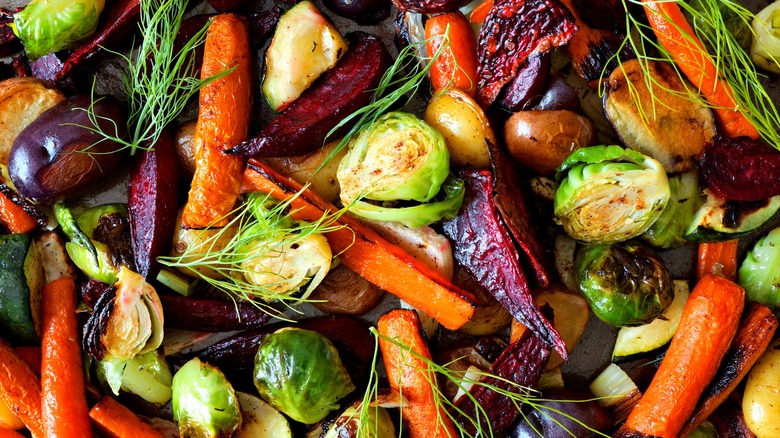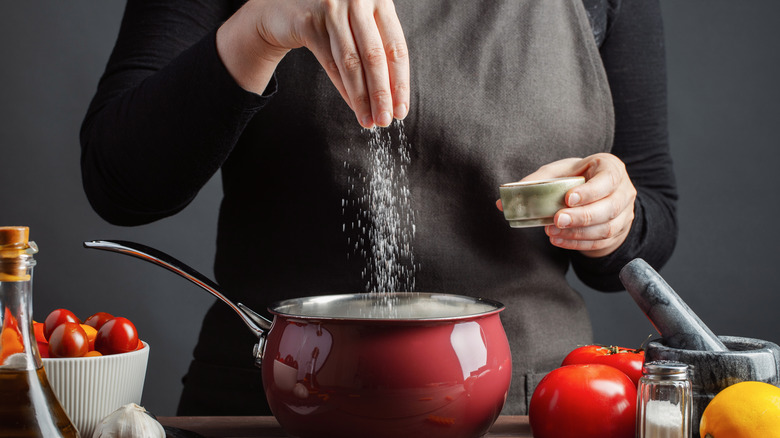When You Should Really Be Salting Your Roasted Vegetables
Does the timing of when you add salt to a dish really make a difference? While perhaps most people agree that timing does matter in regards to using any spice or seasoning, opinions vary on the specifics.
Those in the salt-first crowd contend that seasoning your food from the start is the way to go, whereas others argue that salt can be incorporated throughout or even toward the end of the cooking process. The use of salt in food dates back to 6050 B.C. (via SaltWorks), so this is one debate that has been simmering in the pot a long time.
The culinary pros at The Kitchn state that while properly seasoning food with salt is not rocket science, timing indeed "plays a big role." They note that salting is all about balance, finding the "Goldilocks" happy medium of just right for your recipe. From their perspective, this entails a "season as you go" approach that requires tasting a dish during cooking and sprinkling a dash or two of salt here and there.
Chef and author Samrin Nosrat maintains that learning to apply salt correctly, much like other endeavors, takes practice, as she explained in an interview with Mashed. For certain foods such as pasta, beans, or rice, Nosrat advises salting the water before cooking "so the food has time to absorb salt while it is cooking." Adding it at the table can often lead to meals tasting overly salty.
The science behind salting vegetables
To weigh the flavor comparison of the various salt approaches, the experts at Cook's Illustrated performed a taste test of roasted carrots and beef stew, one in which the items were prepared with salt added at the beginning of the cooking process, and another with the salt measurements included at the end. Their experiment found that salting the carrots at the start helps spread the seasoning more evenly and makes them "flavorful throughout."
Describing the science behind it, Cook's Illustrated explains that the former approach gives the salt "time to migrate into pieces of food," whereas the latter technique resulted in a much less balanced salting, as the vegetables were really just coated in the seasoning.
But again, not everyone feels the same way. Allrecipes.com, which offers suggestions for different seasoning approaches based on the type of food, takes a more nuanced approach to salting. They recommend experimenting with your salting timing and assessing what works for your palate. If you're on a quest to discover the perfect salting regimen, it might be best to take a page from Samin Nosrat's book and practice, practice, practice.

